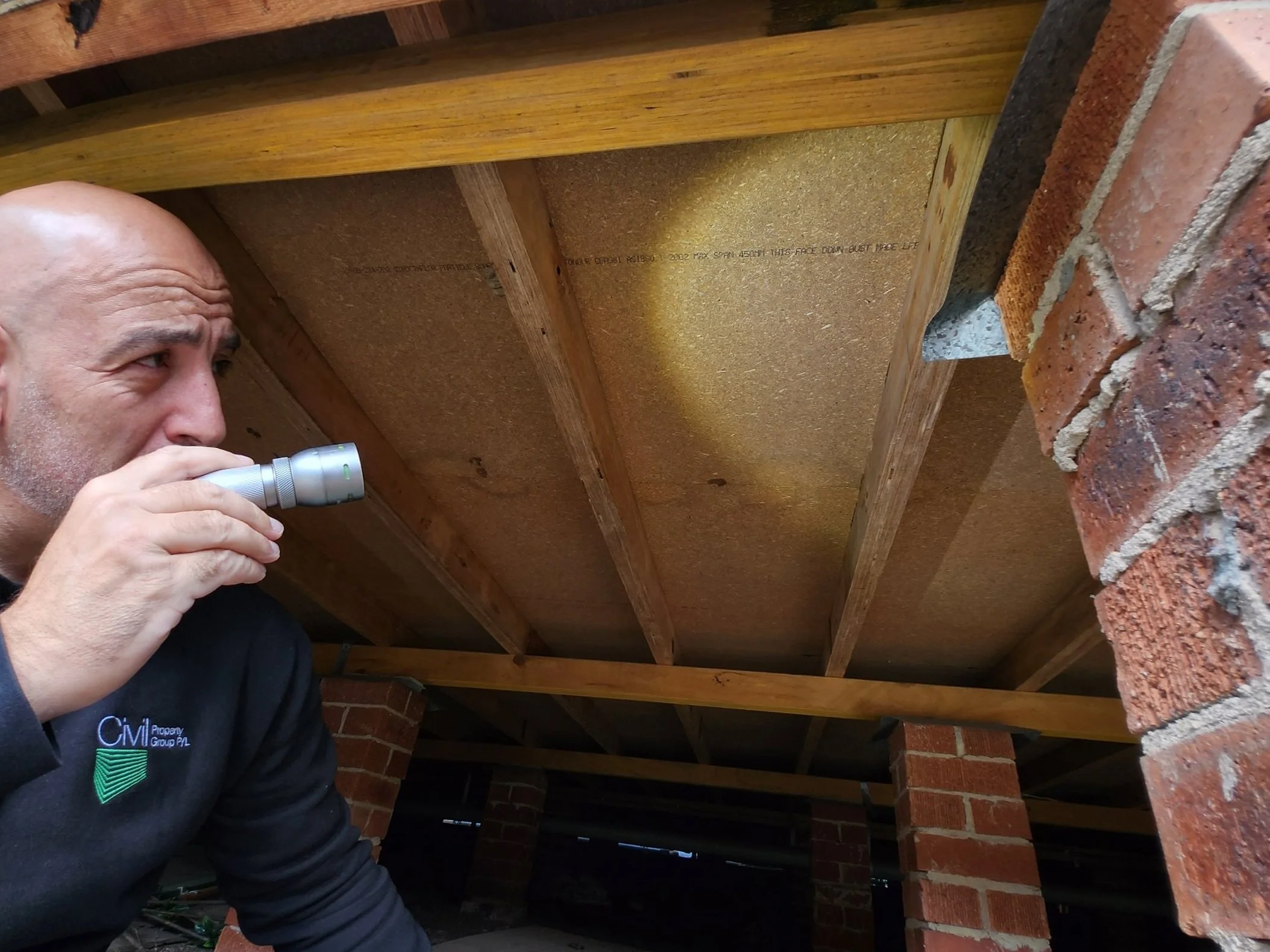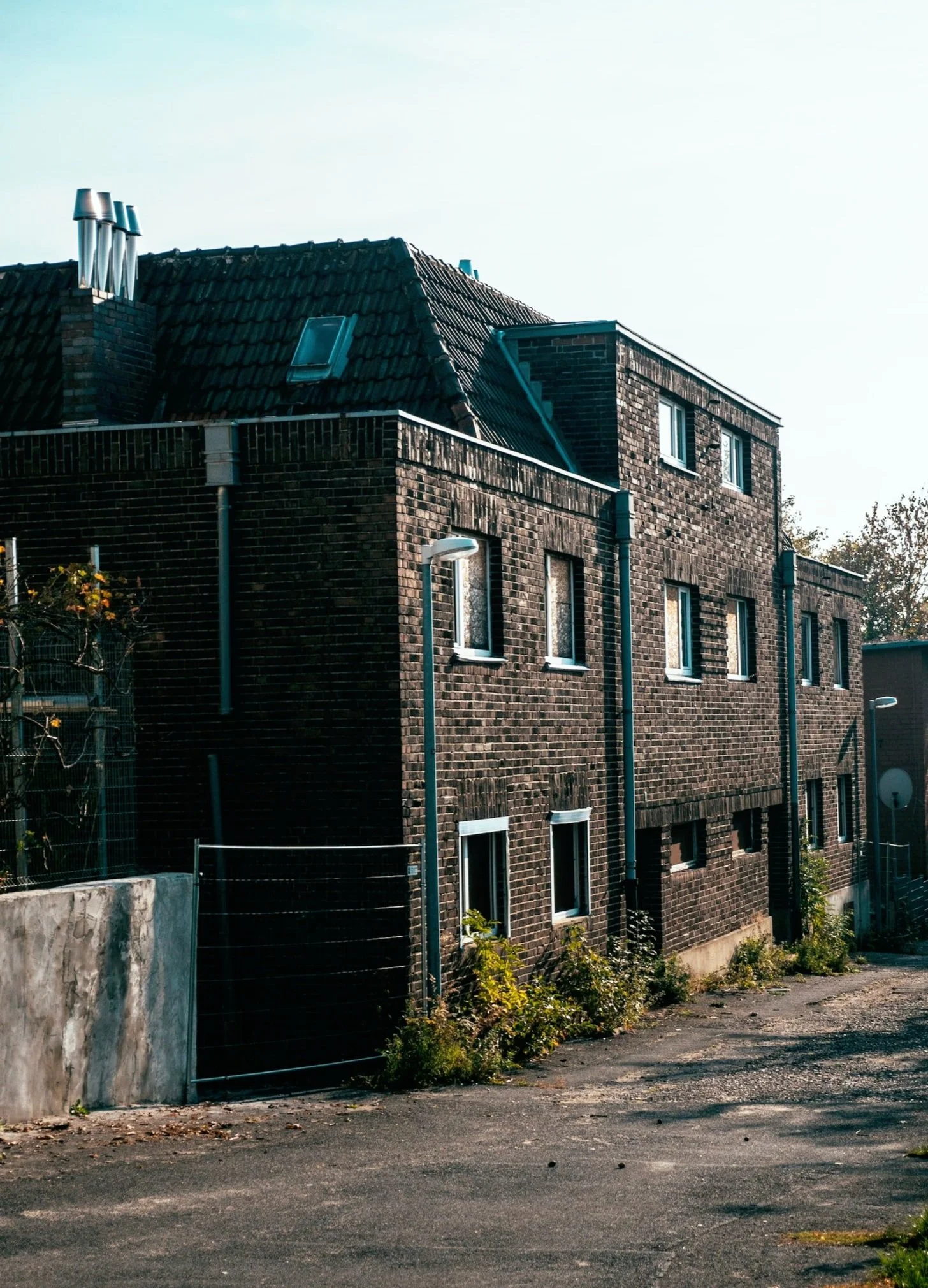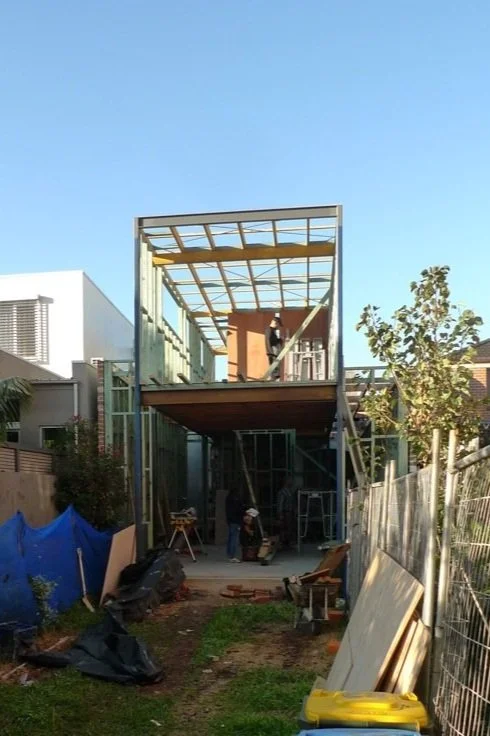Inspections and Reports
-
![]()
Pre-Purchase Building and Pest Inspection
A written account of a property’s condition, a pre-purchase building and pest inspection can help to highlight any serious structural issues or pest infestations and damage that can affect the structural integrity of your potential new home.
Backed by extensive industry knowledge and experience, all of our building and pest inspectors are certified/licensed builders, with many also holding engineering qualifications and experience.
All inspections are comprehensive, checking for significant defects such as movement/wall cracks, mould, moisture (rising damp), visual plumbing and electrical issues, structural defects, rotting timber as well as any evidence of active or previous termite activity.
-
![]()
Pre-Sale Building and Pest Inspection
A pre-sale inspection is essential when selling your property. This report will highlight any existing issues and give you a snapshot of the state of your home.
By inspecting your home prior to going to market, you have the opportunity to address and rectify any issues and ensure you have the best chance of obtaining a higher sale price.
-
![]()
Defects Lists & Reports
Defect reports are a written account of any building defects which have occurred throughout the construction process, including any incomplete or completed unsatisfactorily building works.
Defect reports are also commonly completed near the end of a builders homeowners warranty period to ensure any building defects are found and corrected prior to the expiry of the warranty period.
Depending on the severity and complexity of the defects, the report will detail the defects, a cost estimate, and the recommended method of rectification. Professional witness reports including Scott schedules for NCAT.
All CPG inspectors base their reports on the current Australian Standards and any relevant Legislation.
-
![]()
Dilapidation Report
CPG as a third-party consultant provides neutral, independent, and accurate dilapidation reports, preventing any potential conflicts of interest.
A dilapidation report is a record of the existing condition of the property adjacent to the proposed building or infrastructure works.
New constructions sites often involve demolition, earthworks including excavation, and changes to the existing terrain which could potentially affect neighbouring properties.
The report is useful in determining the risk of potential dilapidation claims, throughout the duration of the construction process, and whether these claims are fair and accurate.
An initial dilapidation report will document any existing structural damage to a property prior to the commencement of construction on an adjoining site.
The final report will record any structural changes or damages sustained to the property once the adjoining construction works is completed.
-
![]()
Construction Progress Assessment
When you undertake building works on your property, you will sign a contract which covers the works to be undertaken. This contract includes the time required to complete and the cost.
All contractors are entitled to receive progress payments for work delivered throughout the construction process to support cash flow to contractors and suppliers.
When construction works are financed through a financial institute, they will require progress payment reports in order to release funds at each progress stage.
A construction progress assessment is carried out by CPG’s experienced senior Construction Managers, providing an unbiased, independent report which assesses each claim on the basis of work undertaken, labour and materials used, delivery timeframes, and any other construction costs in accordance with the contract.
This report can be used as a progress certificate which states the amount calculated by the inspector to be due to the builder.





